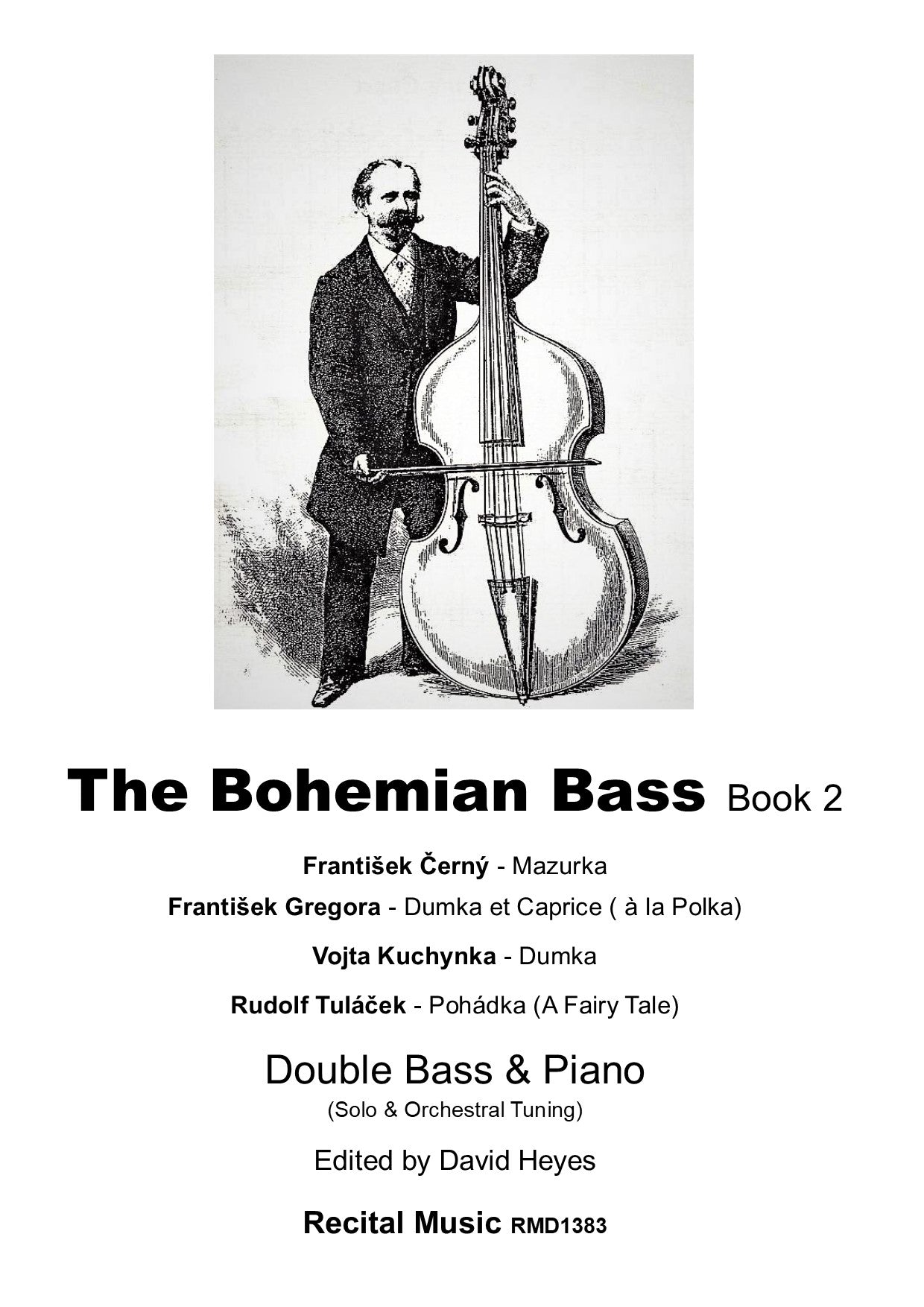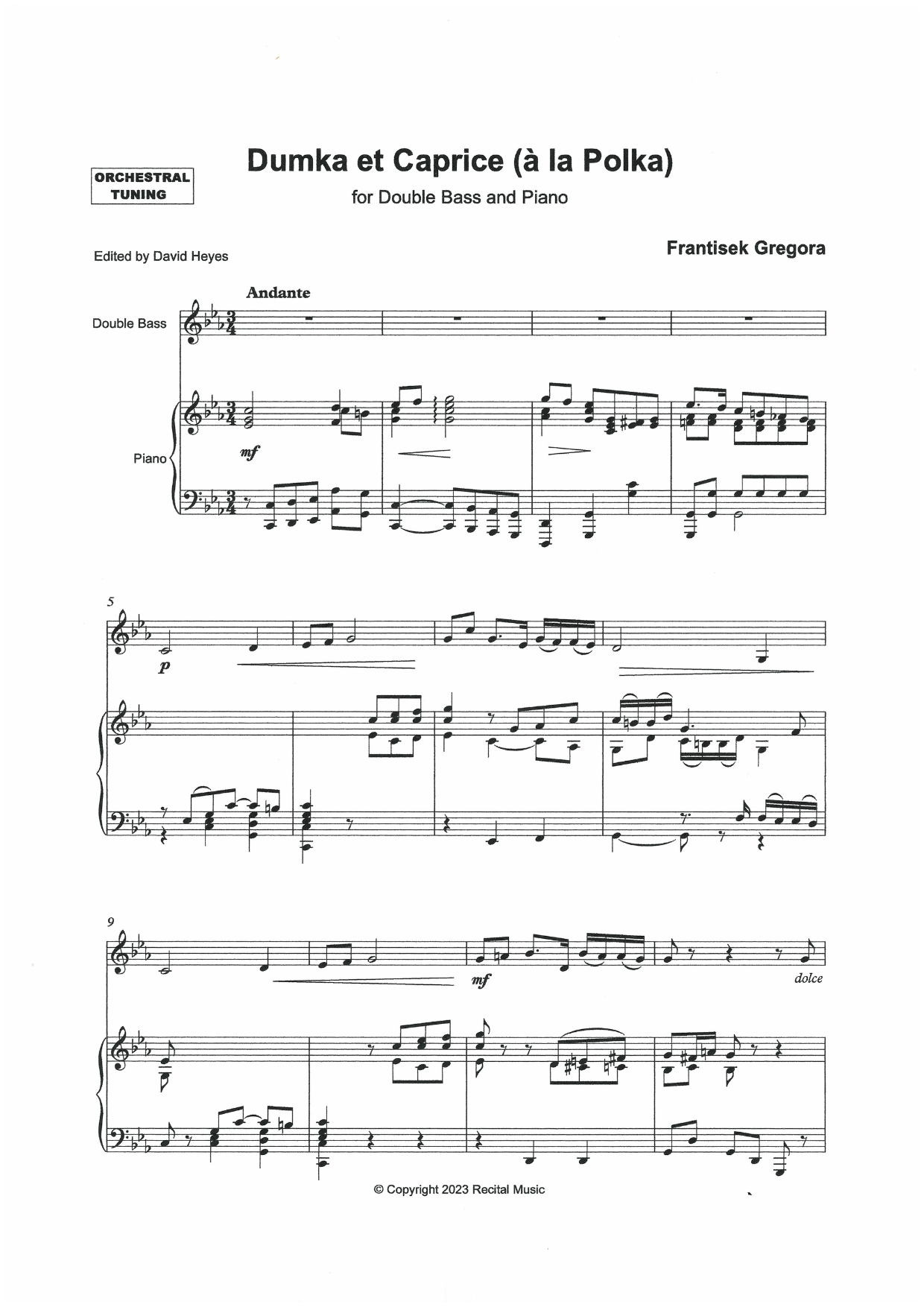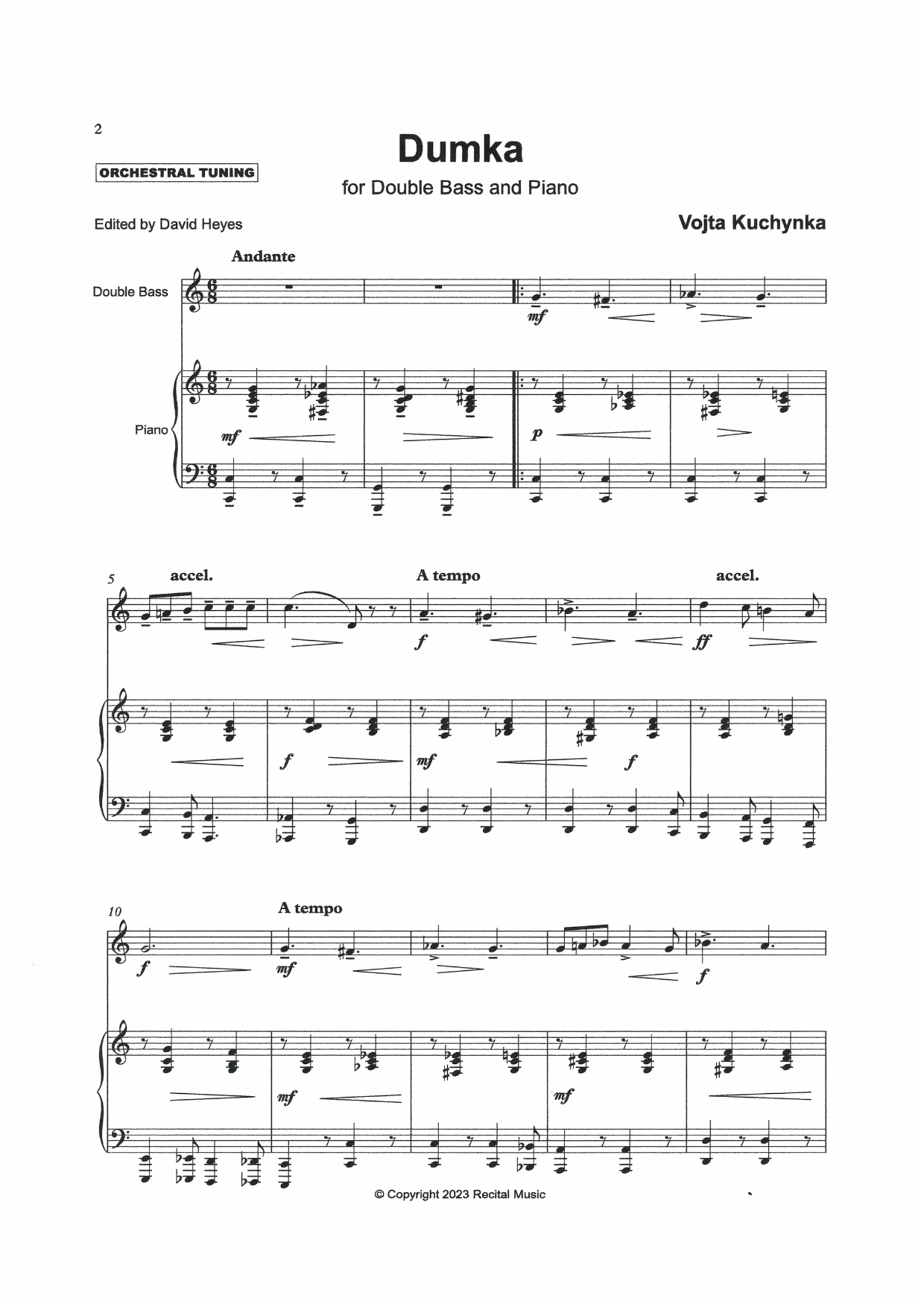David Heyes
The Bohemian Bass Book 2 for double bass & piano (ed. David Heyes)
The Bohemian Bass Book 2 for double bass & piano (ed. David Heyes)
Couldn't load pickup availability
About the Book
The Bohemian Bass: Book 2 brings together four impressive and inventive works for double bass and piano by leading members of the late 19th and early 20th- century Czech School of Double Bass. Aimed at the intermediate-advanced bassist, each piece explores the entire register of the instrument in a lyrical and expressive style, emphasising the cantabile, sonorous and virtuosic qualities of the solo double bass.
Edited by David Heyes
The Bohemian Bass Book 2 is available for both solo and orchestral tunings
Table of Contents
1. František Černý - Mazurk
2. František Gregora - Dumka et Caprice (à la Polka)
3. Vojta Kuchynka - Dumka
4. Rudolf Tuláček - Pohádka (A Fairy Tale)
František Černý
(1861-1940) studied composition with Antonín Dvořák and much of his music reflects the salon style of the late 19th-century. All his works are melodic and appealing, combining the late-Romantic idiom of Dvořák and Brahms, with Czech lyricism and influences, and he makes full use of the solo capabilities of the double bass.
Mazurka is a vibrant and exciting work that is both dramatic and lyrical. It emphasises many different facets of double bass throughout its solo range. The accompaniment is rhythmically independent and supportive, creating a powerful backdrop against which the bassist propels a dramatic narrative from the first note to the last.
František Gregora
(1819-1887) was a prolific composer and was born in Netolice, Bohemia, on 9 January 1819. in 1844, he entered the Vienna Conservatoire, where he studied double bass with Antonín Slama and composition with Gottfried Preyer. After graduation, Gregora returned to Bohemia, settling in Písek, where he lived until his death on 27 January 1887. He became an important local musical figure as organist, choirmaster and music teacher, and was soon nicknamed 'the travelling bass virtuoso' - having given many solo recitals in the area.
Dumka et Caprice (à la Polka) was included as part of Simandl’s Die Hohe Schule (Advanced Course), a nine-volume series featuring 49 pieces composed by many leading bassist-composers and teachers of the late 19th century. Dumka et Caprice (à la Polka) demonstrates the lyrical and virtuosic potential of the double bass across its middle register and is a fun and engaging piece which offers much to players and audiences alike. A perfect encore or final piece in a recital and well worth the effort.
Vojta Kuchynka
(1871-1942) gave solo recitals until the day of his retirement when he celebrated his 600th recital and was known as 'the Kubelík of the Double Bass', after the leading Czech violinist of the day Jan Kubelík (1880-1940). He was praised for his perfect technique, impressive harmonic work, interpretation, and tasteful transcriptions of classical works. Most of his recitals were in Bohemia or Moravia, and one concert in Prague, reviewed in The Strad by Miss Windust, stated: "Alongside the brilliant performances of František Ondříček and Karel Hoffmann, it was the admirable virtuosity of Vojta Kuchynka that made the deepest impression on me." He made the first Czech double bass recording for Parlophon, and Prague Radio broadcast recitals of his music to celebrate his 65th and 70th birthdays.
Dumka has remained in the manuscript until this new edition from Recital Music and is a nostalgic work of wonderful contrasts emphasizing the technical and musical prowess of the soloist. Kuchynka probably composed Dumka for his own recitals to demonstrate his skills as both composer and virtuoso, and the musical style is instantly appealing and engaging. The bassist plays almost exclusively in the solo register creating a mini- tone poem of amazing colours and distinction.
Rudolf Tuláček
(1885-1954) was one of the leading Czech double bassists of his generation and was a respected and influential teacher at the Janáček Academy of Music in Brno. In 1901 entered the Prague Academy of Music to study with František Černý, one of the Czech capital's leading bassists and teachers, and graduated in 1907 with the highest commendations from his professors, He became Solo Bassist in the Zagreb Opera Orchestra in 1909 and from 1920 he was also a Professor at the Zagreb State Academy of Music. In 1937 Tuláček became Professor of Double Bass at the Brno Academy of Music and in 1948 became the first Double Bass Professor at the newly founded Janáček Academy of Music in that city, where he taught until his death on 17 September 1954. Rudolf Tuláček studied composition at the Prague Academy of Music and later with Antonín Dvořák, and his music displays the lyricism and melodic qualities typical of the salon music of the day, alongside compositions of great virtuosity and energy.
Pohádka (A Fairy Tale) has remained in manuscript until this first edition from Recital Music. Beginning with a wistful and evocative melody, followed by a more imposing middle section, which leads into a stylish and expressive return of the opening music. The accompaniment is colourful and inventive helping to create a beautiful gem which deserves a place in the solo repertoire.







